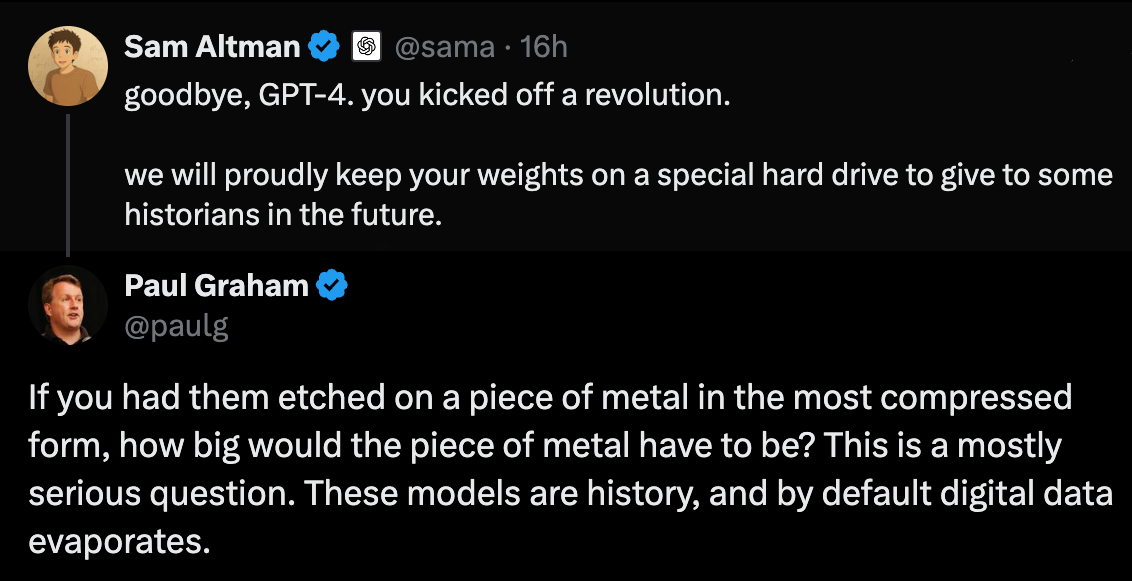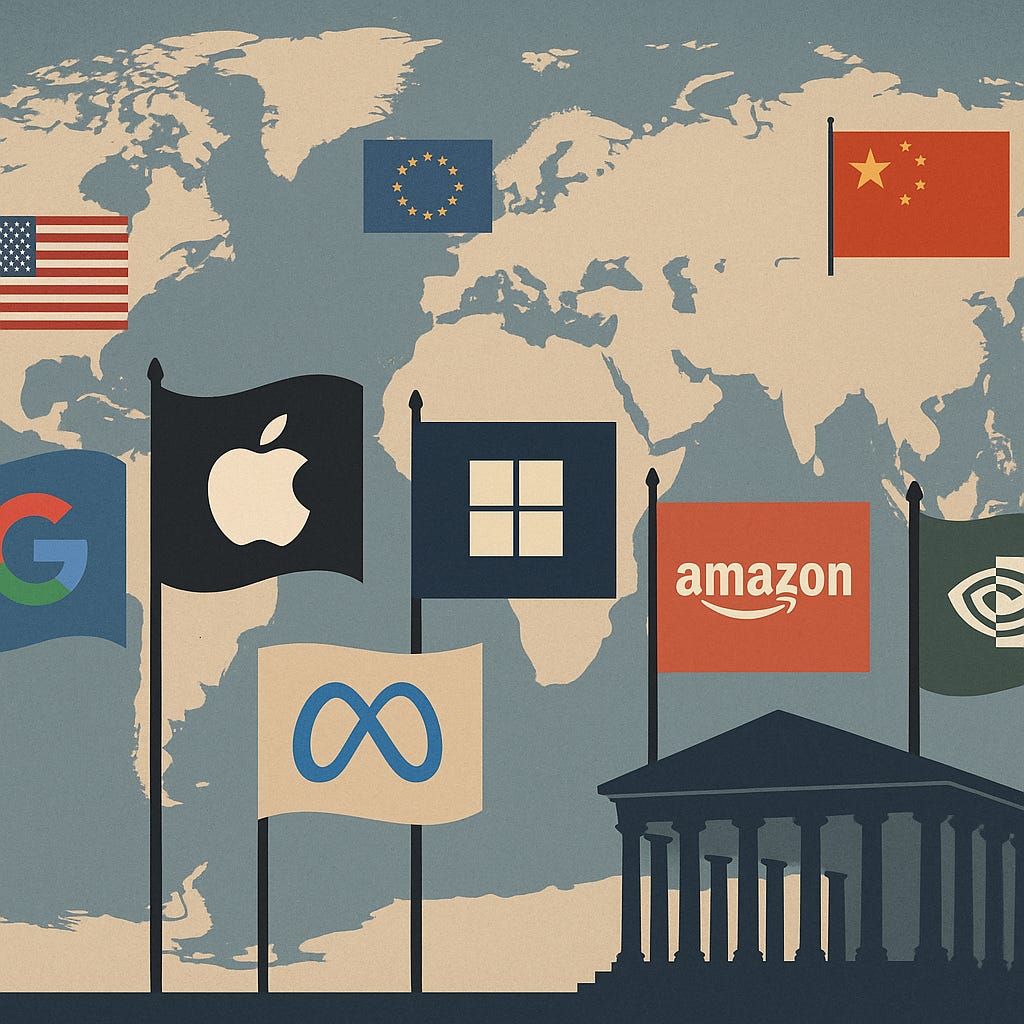562: Big Tech as Nations, Amazon’s GPU Hunger Games, Cadence & Synopsys, Google + SpaceX, Todd Graves, Zuck Interview, ChatGPT Surgery, Chokepoint Map, and Dolphin LLM
"Empires of Code, if you will."
Life is like a game of cards. The hand that is dealt you is determinism; the way you play it is free will.
—Jawaharlal Nehru
🤖→💾→🧬🧬🧬🧬 As GPT-4 is being taken offline, Paul Graham tweeted to Sam Altman about finding a way to preserve the historic model for posterity:
My immediate reaction? DNA. It’s perfect for this. 🧬
Twist Bioscience offers DNA storage of digital data. This makes sense because DNA is a remarkably stable molecule, optimized for storing information by billions of years of evolution. And since DNA sequencing technology will likely persist as long as humanity itself, you'll be able to read whatever you store in DNA far into the future.
DNA is also very cheap to copy, so you could write it once and then make a bunch of copies to be stored in multiple locations around the world. And to be clear, that DNA doesn’t need to be in a living organism, you can just keep it in a vial 🧪
That’s how you store a lot of data for the looooong term. The ultimate time capsule!
Imagine someone in 500 years sequencing a vial and finding GPT-4 🤖🔬
☀️🧠💭📃✍️ Human memory can be pretty bad. At least, mine often is!
That’s one reason why I love this idea from my friend Jimmy Soni (💚 🥃✍️📚):
He has a document called ‘Beautiful Memories’ where he captures uplifting things he wants to remember. It can be anything — special moments with his kid, family, friends, or professional achievements. Anything meaningful.
He’s mentioned it to me a few times over the years, and every time I think “that’s a great idea, I should do it!” but I haven’t done it yet…
¯\_(ツ)_/¯
(Well, that’s not 100% true. I did create a file called “Beautiful Memories 💚” in Obsidian back in 2023, but I haven’t written anything in it yet 😬)
🏦 💰 Business & Investing 💳 💴
🌎📱 Big Tech Titans as Digital-Era Quasi Nations & Empires 🏛️🏯🏰
I was recently talking with my friend MBI (🇧🇩🇺🇸), and we were discussing Big Tech. He mentioned that (I’m paraphrasing) many of his readers question why he covers these companies because they are “so well-known and understood.”
But we both felt that wasn’t quite right.
While it’s true that few will admit to not understanding them, and most people *feel* like they know them well because they constantly see headlines and news items, very few have gone deep and thought about them enough to have a truly informed opinion.
In fact, the OG Ben Thompson (💚 🥃🎩) has largely built a career out of thinking more deeply and systematically about these companies than pretty much everyone else.
This made me think about how these companies are now so large and influential that they function more like nations or empires on the world stage.
The US, China, and the EU may be the biggest players, but Google, Apple, Amazon, Microsoft, Meta, Nvidia… these titans also shape the world — and our lives — in very tangible ways.
Understanding them doesn’t have to be just about “Should I buy the stock or not?”. It can also be about better understanding the modern world and the forces that shape it (and thus other companies and investments, if we want to bring it back to business). It’s similar to studying the Austro-Hungarian or Ottoman Empire a century ago.
Beyond corporations. Empires of Code, if you will.
🛒 Inside Amazon’s GPU Hunger Games 🤖🤖⚖️🔀🧪👨🔬
Last year, Amazon faced a severe GPU shortage and had to figure out how to carefully allocate its limited supply between external AWS customers and internal teams developing products and features.
They launched "Project Greenland" in July, described as "a centralized GPU capacity pool" to better manage and allocate its limited GPU supply.
Here’s a look at how they did this:





